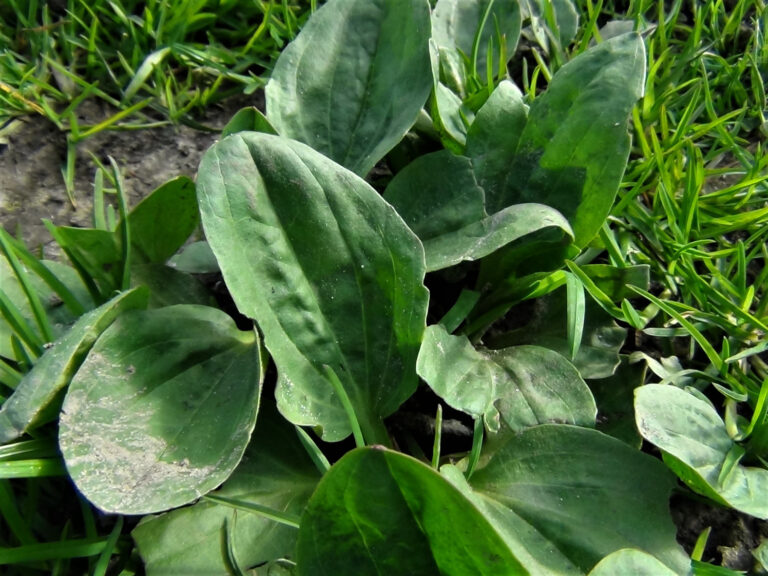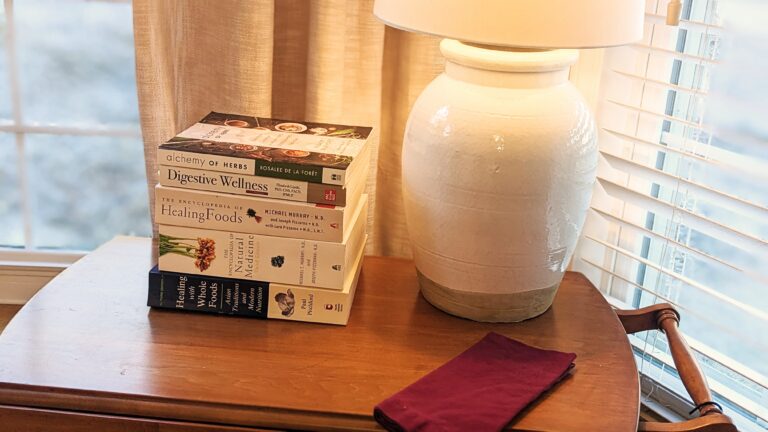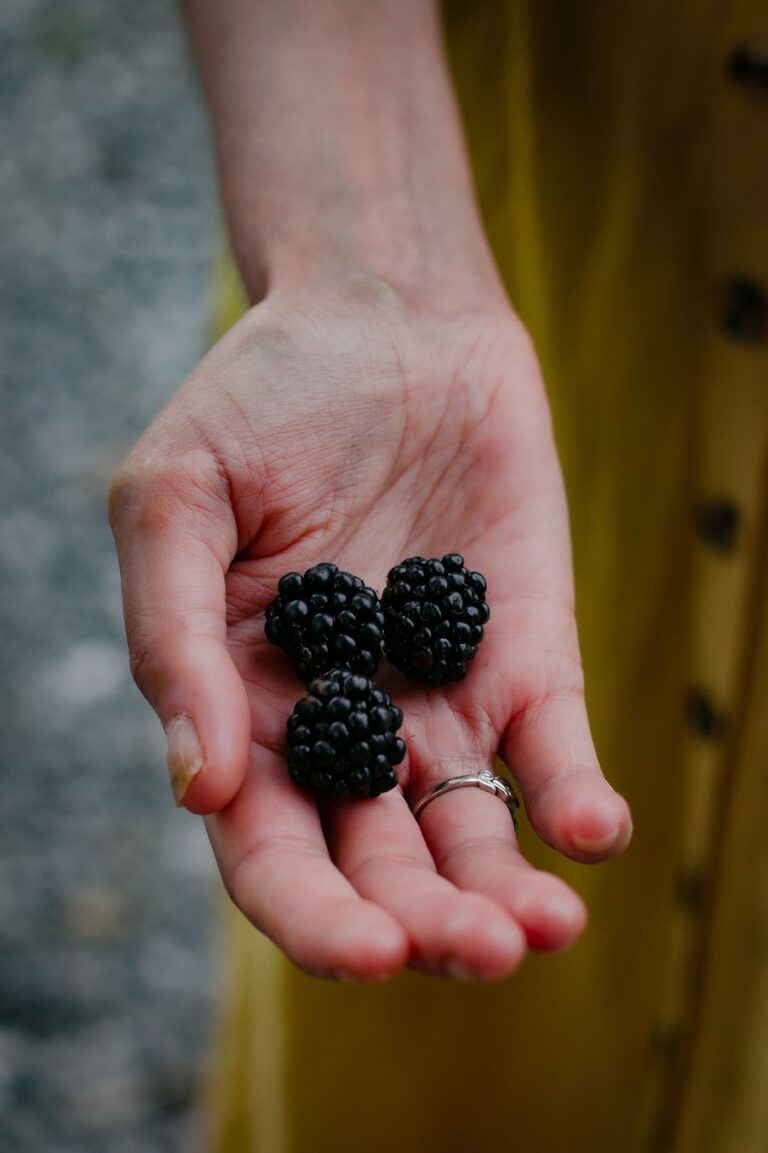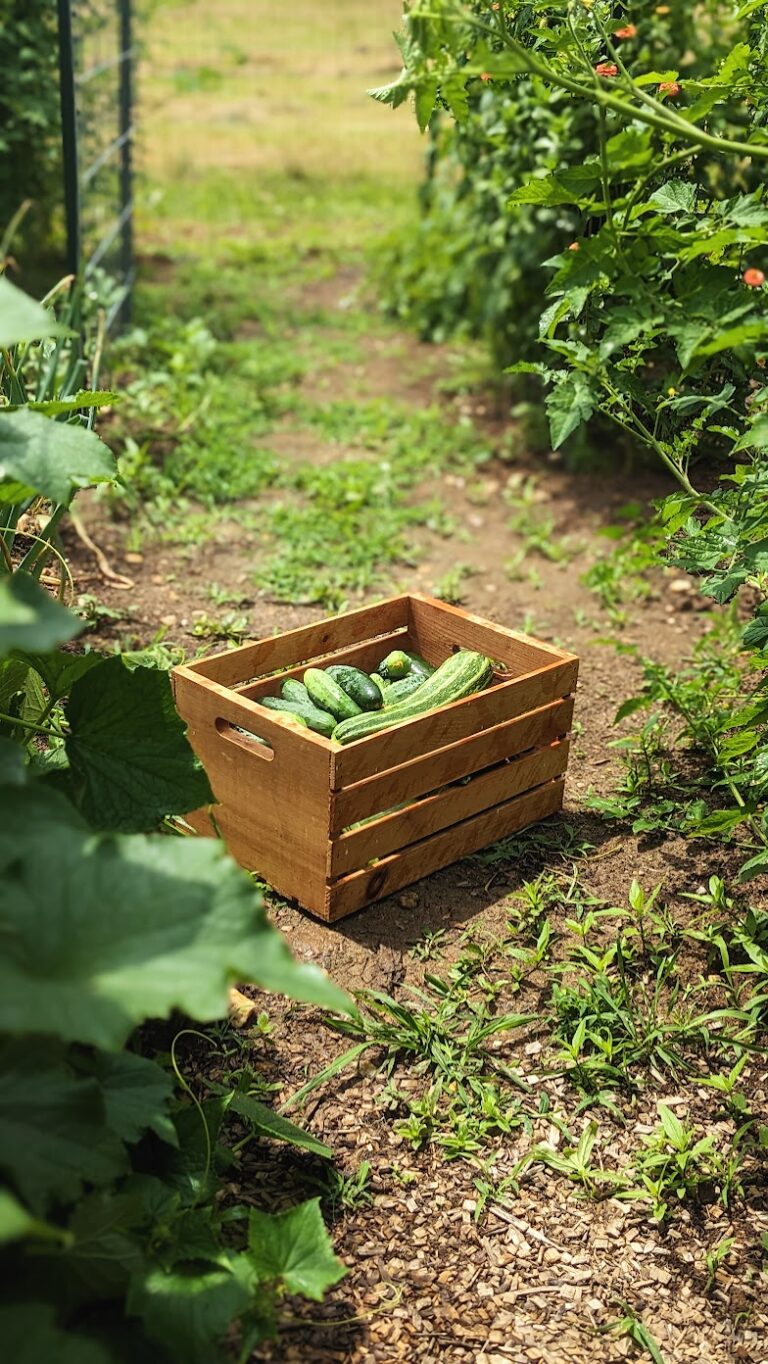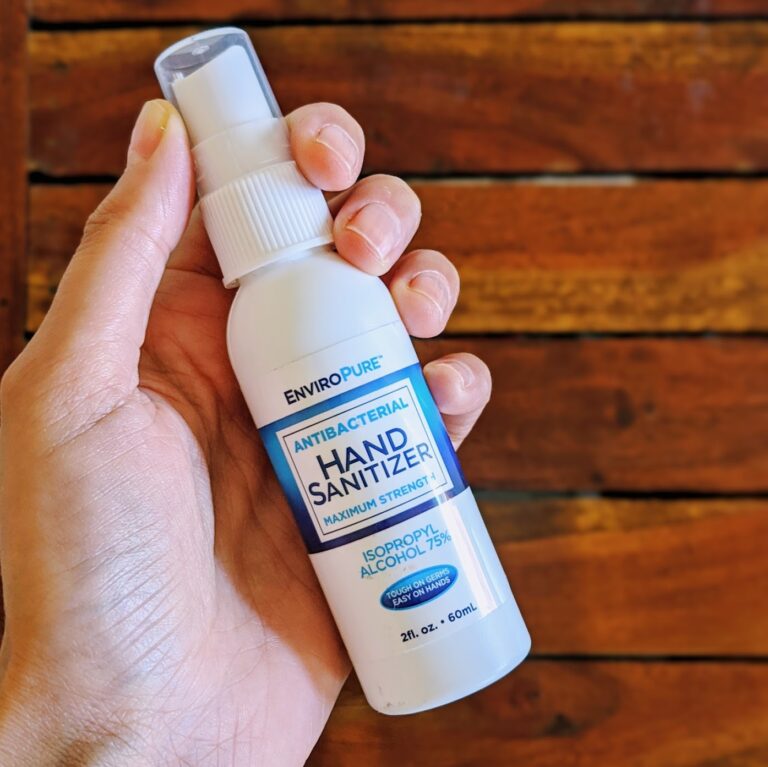Defining Fair Trade & Why it Matters
In general, knowledge about supporting fair trade companies is something that most people have at least heard of. In this post, I’m going to explain a little bit about what Fair Trade, local, sustainable, organic and B-Corp Products mean. I’ll also share some certifications that are useful to look out for on the labels of various products, and then I’ll list some of my favorite brands/companies I personally prefer to shop from. But first, I’ll explain WHY I think it’s worth being a consumer who is conscious and wise about what you buy and where it comes from.
Why Shopping Fair Trade Matters
According to the Fair World Project, Forced labor is documented in cotton production in the nine countries that produce 65% of the world’s cotton supply. Child labor is also prevalent in cotton growing, as well as in the ginning and milling processes. As in so many other cases, one can’t address these critical human rights violations without addressing poverty.
That’s just one of the industries that relies on forced labor and child labor to supply the world’s demand for goods. So why shop fair trade?
In Greenville, Delaware, Ten Thousand Villages customer Jessica told the Borgen Project that she likes to shop Fair-Trade because she feels “[…] it creates an instant connection between myself and someone across the world; someone who I don’t necessarily know, but a person I get to help make a living.” Fair Trade products connect the consumer to the artisan in was that “fast fashion” or unidentified + cheap labor never can.
Another customer, Katelyn, told the Borgen Project, “It’s really easy to just walk into a store and buy something, and if that is going to help someone who needs money for food, water, a house or [an] education—whatever—I just think it’s something small that can make a huge impact on someone else’s life.” Supporting Fair Trade products can make a huge difference for the people making the items.
My Journey with Fair Trade Goods
& Why Fair Trade Matters
When I worked at Whole Foods Market in the Whole Body Department, we proudly sold (and they still do sell) fair trade items, including clothing, baby products, body care items, and more. All these products are sourced from reputable companies who care for the environment, humanity, and every step in the process of manufacturing products for their audiences. The World Fair Trade Organization, a fair trade labeling organization, states: “In contrast to commodity certifiers, the WFTO Guarantee System assesses the entirety of a business [emphasis added mine], not just a specific product, ingredient or supply chain. It includes an assessment of the enterprise’s structure and business model, its operations and its supply chains.”
Even before 2016 working at Whole Foods, I had an interest in supporting fair trade companies because of my exposure to them at local Christmas fairs through local churches and charities. Although fair trade goods can be expensive, I have been increasingly aware of my effect on others around me and choose to buy fair trade goods whenever possible as a means of good stewardship for people, the land, and the earth.
I hope you come to believe as I have that we vote for what we stand for by the products we buy. The alternative is that if we choose to continue buying products that disregard the human life that produced them, then we are essentially oppressing those who manufacture those goods.

Important Terms and Principles of Fair Trade
Local
Local means that the a good or product was manufactured within a relative distance to your personal home. Contrary to popular belief, local products do not necessarily ensure that they are organic or even fair trade. However, you are much more likely to get to know the farmer/producer and develop a good relationship with them so you do know where your products come from. Note: when shopping local at your farmer’s market, double check with farmers that their products are organic in addition to being local.
Organic
According to the National Organic Standards Board (NOSB), organic means: “an ecological production management system that promotes and enhances biodiversity, biological cycles, and soil biological activity. It is based on minimal use of off-farm inputs and management practices that restore, maintain, and enhance ecological harmony. Finally organic ensures that products are free of harmful residues.” In other words, organic agriculture focuses on the health and productivity of interdependent communities of soil life, plants, animals, and people.
Sustainable
Sustainability is a relative term that “compares the environmental, social, technical and cost aspects of a product to a previous generation, a competitor or to an idealized or aspirational baseline or standard,” according to Kevin Brady of Five Winds International. In other words, sustainable products don’t deplete natural, nonrenewable resources, don’t directly harm the environment, and aren’t made in a socially irresponsible way. This means that products are not only tested for efficacy, but they also focus on how the products will protect and preserve various aspects of environmental and human health from a long-term perspective. An example of sustainable goods are products made from recycled materials and have low-waste output.
B-Corp
B Corp certification is basically the highest certification you can receive in order to be sustainable, fair trade, organic, and all the above. “Certified B Corporations are businesses that meet the highest standards of verified social and environmental performance, public transparency, and legal accountability to balance profit and purpose… The B Corp community works toward reduced inequality, lower levels of poverty, a healthier environment, stronger communities, and the creation of more high quality jobs with dignity and purpose. By harnessing the power of business, B Corps use profits and growth as a means to a greater end: positive impact for their employees, communities, and the environment.”a
An example of a B-corp certified farm is that they not only ensure that the farm doesn’t use chemicals/pesticides, but they also go above and beyond to ensure that even the irrigation they use is free of chemicals, the manure they fertilize with is pure, etc.
Fair Trade Certified™ means that a product was made “according to rigorous social, environmental, and economic standards.” It means that the company has certified transactions by fair trade organizations who ensure that the suppliers, producers, and workers are using safe conditions, protect the environment, build sustainable livelihoods, and earn additional money to empower and uplift their communities.
Labels to Look For & Where to Buy
Below are some of the fair trade and B corp certifications to look for on labels and products you buy. You can view each of their websites to get more information on the specific ratings of each of these organization’s requirements to become fair trade and/or B corp. You can buy fair trade goods at stores like Whole Foods Market, grocery stores, online through the companies’ websites, or through fair trade/B corp websites. Click on the photos below to be directed to each certifying organization.
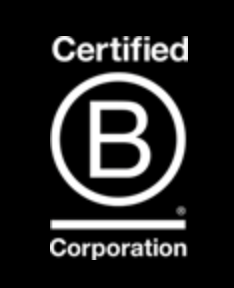
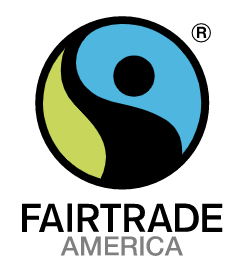
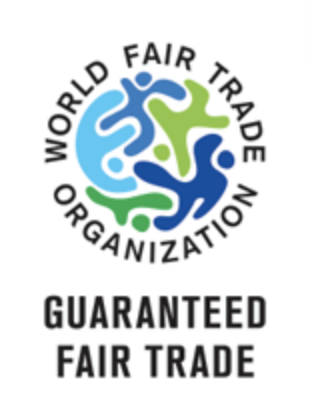
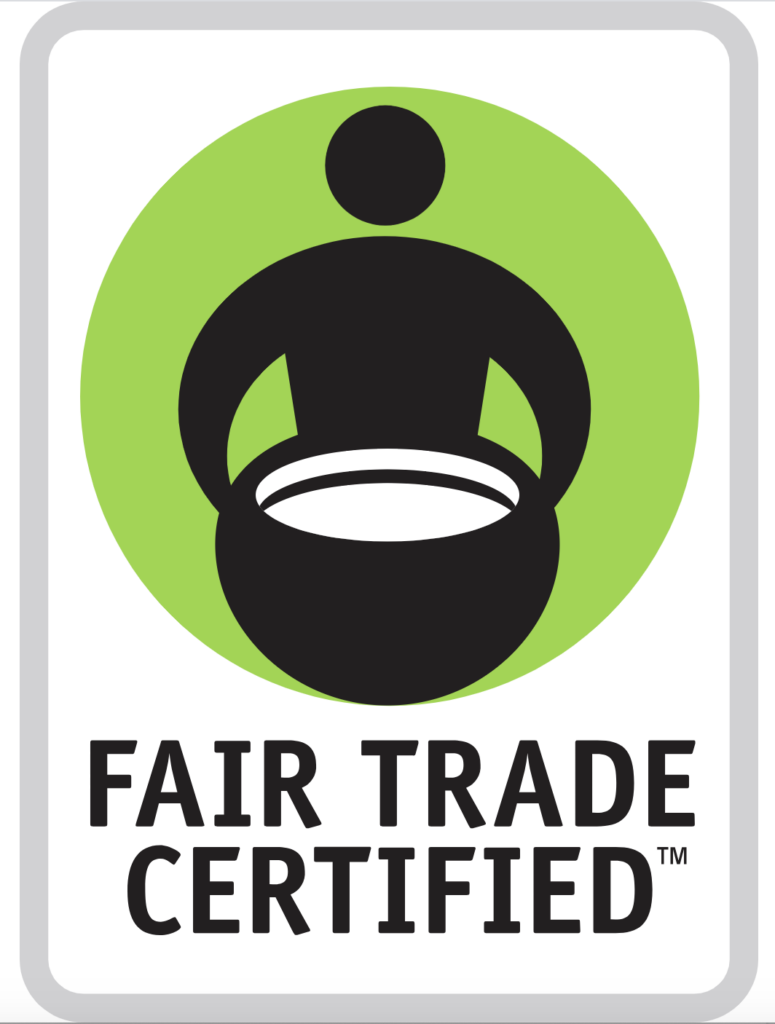
Fair Trade and/or B Corp Companies I Support
This is by no means an extensive list of fair trade or B corp companies. However, here are a few companies to look into to get started.
Accessories
- Noonday Collection: I absolutely LOVE their jewelry, bags and accessories!
- Hope Shop: an amazing woman with an incredible story and inspiring jewelry
- The Jolie Market: These are the CUTEST seagrass baskets made from Artisan basketmakers from around the world.
Clothing
- Darn Good Yarn has amazing skirts and clothes in addition to ethically sourced yarn
- Pact: really great organic cotton and fair trade clothing basics
- Madewell: partial lines
- Patagonia is fair trade certified
- Carly Jean Los Angeles has much of their clothing made in LA but what is not made in LA are family-owned businesses
Food
Bodycare
- Alaffia: super clean hair and body care while supporting women in African villages
- Credo Beauty: basically the Sephora of clean beauty. Incredible website with TONS of brands to look through
- Eco Lips: Fair Trade + clean lipcare. MongoKiss Vanilla Honey Lip Balm is where it’s AT. You can even buy them at Walmart!
- Cocokind skin care products
- Badger Fair Trade Body care products
If you have any Fair Trade/B corp favorites, please email me and let me know and I would love to add your recommendation to the list!
Resources
https://www.greenbiz.com/article/what-makes-sustainable-product-0
https://earth911.com/business-policy/what-makes-a-product-sustainable/
https://wfto.com/our-fair-trade-system



